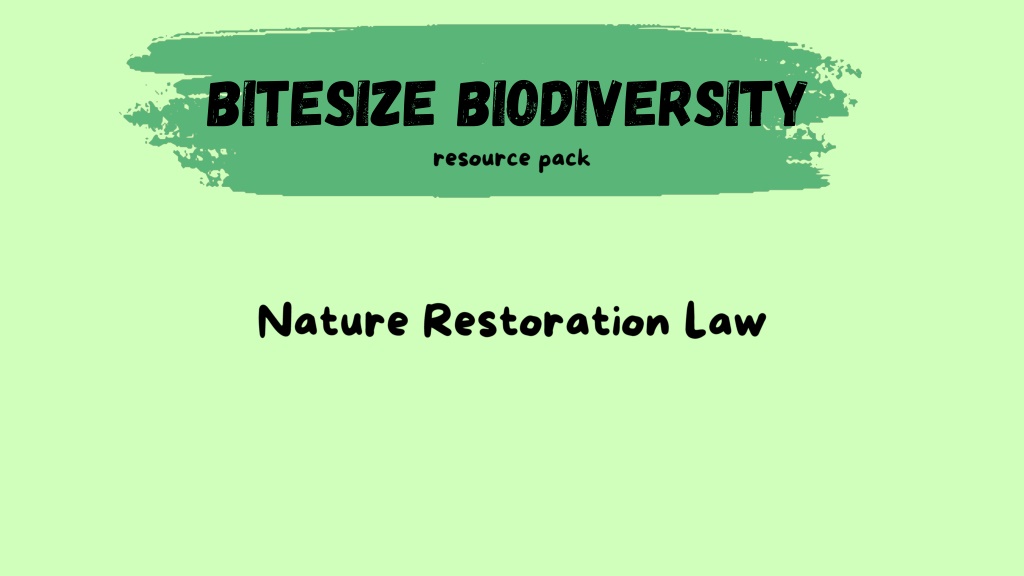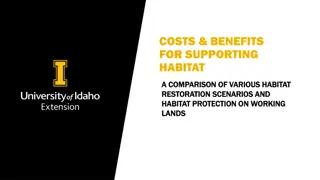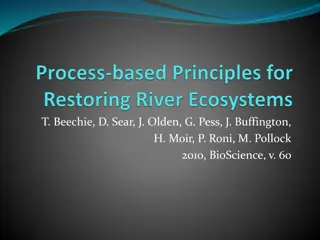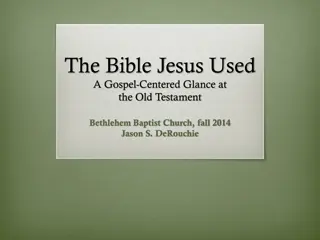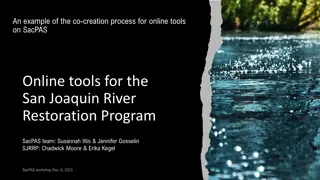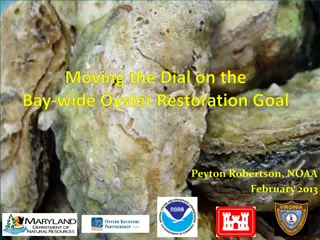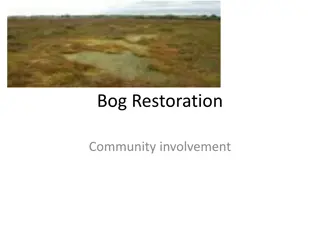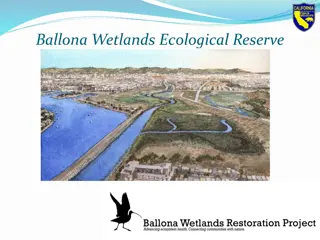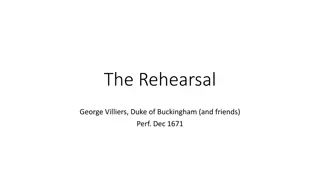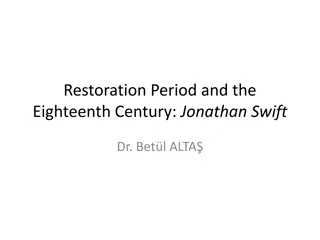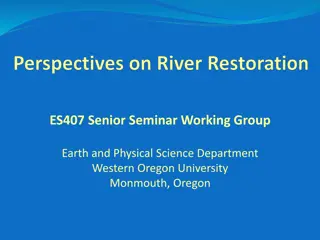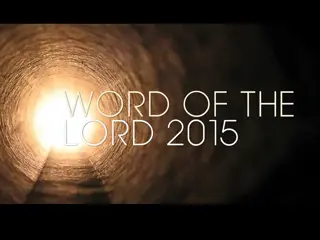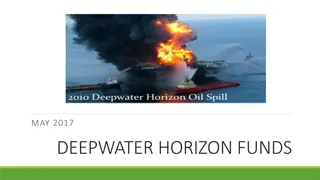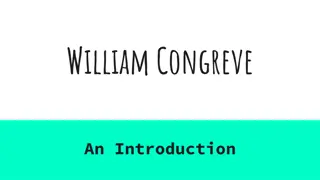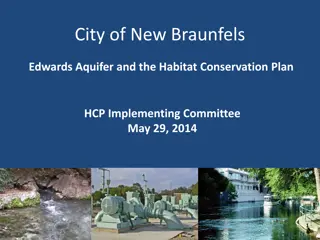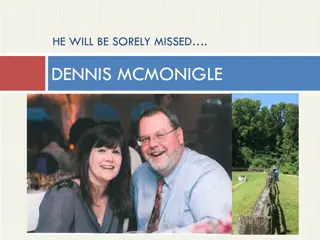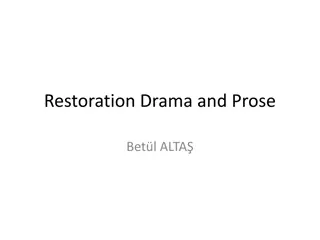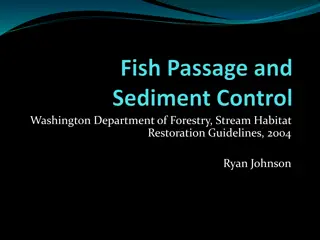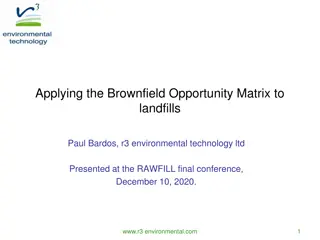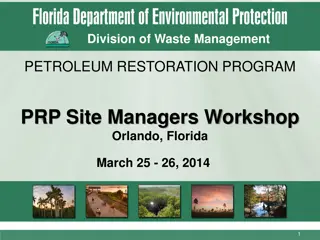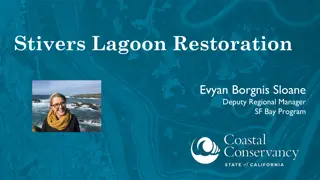Understanding and Advocating for Nature Restoration Law in the EU
Explore the significance of nature restoration law, learn about its origins and implications, and delve into the importance of protecting natural habitats for biodiversity. Discover how rewilding initiatives are helping to restore ecosystems in Ireland and understand the role of the EU in promoting environmental conservation through legislation.
Download Presentation

Please find below an Image/Link to download the presentation.
The content on the website is provided AS IS for your information and personal use only. It may not be sold, licensed, or shared on other websites without obtaining consent from the author. Download presentation by click this link. If you encounter any issues during the download, it is possible that the publisher has removed the file from their server.
E N D
Presentation Transcript
Understand how nature can be protected using the law Understand the origins of the Nature Restoration Law Appreciate the role of different EU institutions in law-making To feel confident in expressing personal opinions and to be open to changes in opinion based on evidence or others arguments To use our critical thinking skills to process information that is presented to us in the media about Nature-Based Solutions and their co-benefits
Introduction to the Nature Restoration Law Would you vote for or against the nature restoration law? Political party tweets Videos: consider others' viewpoints Walking Debate Student reflection Extra activities
Restoring nature means returning these places to their natural state by reversing the damage done by human activity, such as deforestation. Look at the pictures below and spot the difference! Rewilding is a key example of nature restoration and is being done in many parts of Ireland, including on the Beara Peninsula in Cork and at the Dunsany Castle Nature Reserve in Meath. Rewilding happens when areas of land which were previously cleared or farmed are left to grow wild, allowing species of flaura and fauna to return to a safe habitat. 520 hectares of the Dunsany estate has been left to grow wild, allowing the return of many native species such as red deer, otter, corncrake, woodpecker, pine marten, red kite, snipe, and dragonflies.
Match the questions to the answers below to find out more about the Nature Restoration Law The European Union. What is the Nature Restoration Law? Who proposed the Nature Restoration Law? A proposed law which would require EU member states to restore natural habitats. To help us address and adapt to climate change, address soil erosion, ocean acidification and air pollution. What does this mean for Ireland? Among other things, making towns and cities more nature friendly and restoring 20% of all habitats (wetlands, forest, bogs, etcetera) by 2030. Why do we need nature restoration?
Debate time! Over the next few slides, you will have a chance to consider some different opinions on the Nature Restoration Law from people who will be directly impacted by it and people who are directly involved in writing the bill. You will first be asked to consider these opinions and then vote on whether you are in favour or against the Nature Restoration Law. Keep in mind how your vote changes and what opinions you find the most convincing. At the end, you will be invited to reflect with your class and your teacher on what you have learned and what new skills you have picked up along the way. Enjoy!
Read the tweets below and then answer the questions on the next slide! The Socialists and Democrats Group in the European Parliament works for social justice, sustainability & equality for all. The Europeans Peoples Party is a centre-right group and is the largest group in the European Parliament.
There are five different political parties in the European Parliament, all with different perspectives on the Nature Restoration Law. You have read two different opinions on the previous slide. With those opinions in mind, answer these questions: Are the parties for or against the nature restoration law? Based on what you have read, why do you think different political parties would have different views on the Nature Restoration Law? Where do you stand? Are you for or against or neutral, and can you explain why?
VOTE NOW - HANDS UP THOSE WHO ARE IN FAVOUR OF the EU RESTORATION LAW
Answer the questions below while watching the video, then discuss with your class! How many hectares of land will be rewetted according to Pat the farmer? 60,000 hectares 200,000 hectares 340,000 hectares What does Paul from the Irish Farmers Association say is needed for rewilding to be successful? Good press Good communication New legislation Discuss: Where do you think Pat, Paul, and Oonagh stand on the Nature Restoration Law? What issues are Pat and Oonagh concerned about? What percentage of birds does Oonagh from Birdwatch Ireland say are endangered? 63% 52% 75% What is your opinion?
VOTE NOW - HANDS UP THOSE WHO ARE IN FAVOUR OF the EU RESTORATION LAW
"Change is difficult to adjust to." Give an example of this statement from the videos you have A good example of nature restoration is called rewetting, which restores boglands back to their natural state. watched. Why do you think change is so difficult? Is there a way to make it easier for people to cope with First, watch these videos and write down some key quotes, then discuss the questions on the right with your class! change? Michael Giulia
VOTE NOW - HANDS UP THOSE WHO ARE IN FAVOUR OF the EU RESTORATION LAW
Walking debate! Over the next few slides, you will have a chance to examine some quotes from two politicians and from a group of concerned scientists about the Nature Restoration Law. You will first be asked to consider these opinions and then discuss the discussion prompt with your class! You must line up in a line across your class with one sheet that says "strongly agree" or "strongly disagree" at either end. Place yourself along the line and then explain your position to your class Enjoy!
Grace O'Sullivan MEP Walking Debate topic: 'The Citizens that took part in the Biodiversity Assembly were representing the citizens of Ireland. They got all of the facts from the experts. They recommended that we should support and implement the nature restoration law so we should do it!'
Ms Cairns said that certain politicians have "propagated fears" that farmers would be forced to rewet their land as part of the law despite the fact that those politicians "should know that this is not true". She has also criticised other politicians for choosing to "pit farmers against nature" and for "arguing the [Nature Restoration Law] threatens the livelihoods of farmers... in the absence of any evidence." Holly Cairns TD Walking Debate topic: 'This is difficult for a member of the public to understand. Politicians need to be careful how they communicate and base what they say on fact.'
Walking Debate topic: 'I would trust and believe what scientists say before I trust and believe what politicians say.'
Reflection What did you learn from listening to all of the opinions in the videos above? What new skills did you learn during the walking debate? Did the videos change your opinion? Where do you stand now? For, against, or unsure about the Nature Restoration Law? If you are still making up your mind, what are some questions you can ask to find out more information? Write them here!
Extras Here are some fun extra resources if you want to learn even more! Do you know how democracy works? EU law making process flowcharts Can citizens influence political decisions? Email campaign activity
What do you think democracy means? 'Democracy' comes from the Greek words 'demos' ('the people') and 'kratia' ('power'), so when combined these words literally mean 'people power', which is the purest definition of democracy. Vote for me! Vote for me! Let's demonstrate democracy in action! Select two people in your class to 'run' for class president - one wants to ban school uniforms, while the other wants to keep them. Now vote with your feet! Stand next to the person you want as your class president. The person with the most votes becomes president! The job of your class president is to represent you to your teachers. Tell your class president about what is important to you and ask them what they will do to keep their promise. Now have another vote! If you didn't like what you heard, you can elect a new class president. This is democracy in action!
EU law-making flowchart European Commission European Parliament Council of the EU Changes sent to Council Rejects changes Proposes legislation European Parliament Bill fails Accepts changes Changes the changes Rejects changes Conciliation committee Bill passes Accepts changes Bill passes
The nature restoration law's journey Council of the EU European Commission EP Environment Committee European Parliament Bill narrowly survived rejection motion Proposed NRL EP Environment Committee European Parliament Passed bill; returned to Council Rejected changes; returned bill to EP Proposed changes Council of the EU At the time of writing in July 2023, the Nature Restoration Law was just returned to the Council for further changes and negotiation. Check out the EU website for more updates!
EU law-making flowchart - MEPs role Lobby groups Political parties Citizens MEPs debate Proposes legislation European Commission MEPs Your voice matters! European Parliament Some Irish MEPs were originally set to reject the NRL - however, after hearing the opinions of citizens who were in favour of the NRL, those MEPs decided to go against their parties and vote in favour of the bill. MEPs meet in EP and vote Ultimately, the Irish MEPs swung the vote!
Protect and Conserve Nature - What does this mean? Nature conservation is the protection of nature. Nature protection is the actual process of protecting nature from harm by taking precautionary action or defence measures. However, there can be unintended consequences of nature conservation - without their natural predator, the wolf, the deer population may become unmanageable. This is why it has been suggested that wolves should be re- introduced to Ireland. While this may seem like a simple solution, there may be many more unintended consequences of re-introducing wolves. Many concerns have already been raised by sheep farmers who are concerned that wolves would hunt their animals. Public safety concerns have also been raised by politicians who are worried that people may be harmed by wolves too. Killarney National Park is a brilliant example of nature conservation - it is the only place in Ireland where many rare and unique species can be found, including the only remaining native herd of red deer.
Your voice matters! Your voice matters! If you want to affect change in the same way the Irish MEPs did with the Nature Restoration Law, it is important to stay informed on the issues important to you and to challenge your local politicians. After all, they are there to serve you! With this resource pack, you will find a Word document with a template letter to your TD inside. You can use this letter as inspiration to write your own, or just copy and paste it into an email and personalise it! The best time to catch your local politicians' attention is at election time when they are working hard to try and get you (or your family's) vote! When they come to your door, don't be afraid to ask them a few questions about the issues which you are passionate about. Take some time below to write down a few questions! If you are elected, what will you do about... What is your party policy on... An issue that is really important to me is...
Photo credits: Set Sail Wikipedia Irish Examiner Pexels Pixaby Pixaby Cork Beo The Irish Times Killarney National Park Brussels International Centre European Parliament
